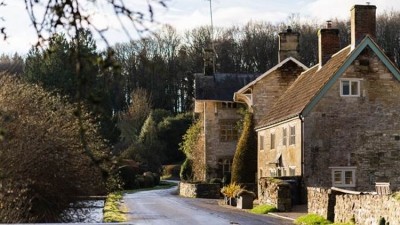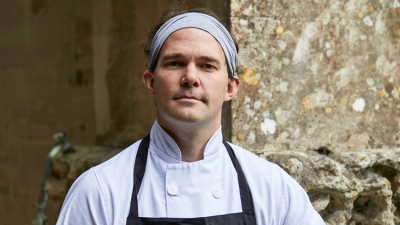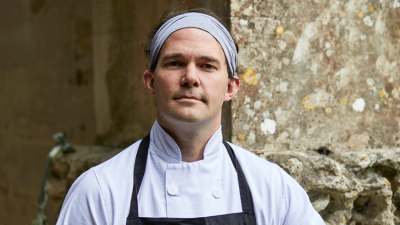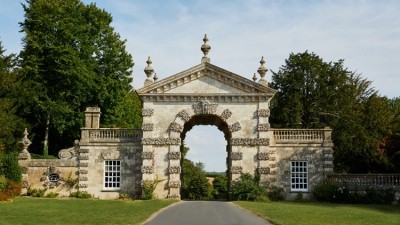Dan Brod: “Pubs with rooms were places you went for a wedding, got drunk and crashed”
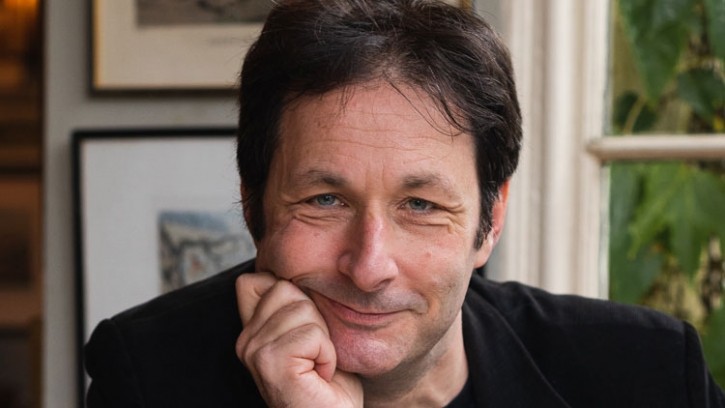
How did The Beckford Group come about?
It was around the time of the crash of 2009, so not the ideal time to start a restaurant. Charlie Luxton, who is my business partner, had been working for Soho House group as an ops director and had been there 10 years and wanted to do his own thing so I helped him put together a plan. We were initially going to open a restaurant in west London on the former site of one of Antony Worrall Thompson’s restaurants, but it fell through. Then country pub The Beckford Arms came up [in Wiltshire] and we both really liked country pubs and we had some good ideas for it, so we decided to take it on.
What was the appeal of pubs?
Pubs with rooms is an actual sector, but in those days it wasn’t really. There were one or two people doing them, but back then pubs with rooms were mainly places with pine furniture in the bedroom where you went for a wedding, got drunk and crashed. We took a bit of what happened to country house hotels and the boutique-isation of them and applied it to the pub. At the time we hit a zeitgeist where people didn’t want to spend £200 a night to go to a rather stiff country house hotel but instead go to something that was a bit more cosy.
You’ve since grown the business…
After The Beckford Arms we opened The Talbot Inn in the town of Mells, which we knew that quite well because if the connections with Soho House. Our third venue was Lord Poulett Arms in Somerset in the village of Hinton Saint George which has more locals and bigger foodie base and the fourth, The Bath Arms, we took that on just as Covid started. That is located right next to Longleat [safari park] so it traditionally was quite a touristy pub, but we have made the food better so it’s a place where locals want to go to as well. We also local wine shop in Tisbury [in 2015] but it was a bit small, so we moved it to Bath and reopened it as the Beckford Bottle shop. Then a site came up nearby in the city and we opened Beckford Canteen, which is our most foodie offering and only pure restaurant.
What’s next on the cards?
We’ve got in the works two smallish is 16–17-bedroom hotels which will very much be restaurants as well. I say we’re doing two, but who bloody knows? Trying to get planning permissions for anything at the moment takes so long – one has been stuck in planning for the past eight months, the other one is quite a complex build. One will be ready mid next year, the other by the end of the year – but it could all fall through as well. We want to do a mixture of the bottle shop and canteen in one of these hotels as a kind of brasserie that will be open to the public.
Why hotels?
It's partly because of where they are. They are locations where we have a staff base ready, which is a key element. A pub with rooms is basically a restaurant, a bar and the rooms - so three businesses in one and that describes a hotel, but in this country, we have an inverse snobbery where people don’t like going to eat in a hotel, so we call them pubs with rooms. In rural locations, and we are a rural-ish company, we need to have the rooms to provide guaranteed custom to keep the restaurants going with the locals. We like hotels because in a restaurant you might get four hours with [a diner] if you’re a Michelin restaurant, 2 hours in a [less fancy] one, and 45 minutes in a casual dining restaurant, but with a hotel you’re going to get at least 24 hours with someone. That is a much better way to give someone a great experience. We really can give someone body a properly managed, good authentic time if you have them for long enough.
Is the food offer the same at your venues?
We give our chefs total control of the menu at each place. As a group we are trying to guarantee there is a certain quality and you can expect very good food but within that we give the chefs carte blanche. There are a few parameters, and the pub menus must have certain things like fish and chips, a burger, and steak but really, they can choose what else to serve and their own suppliers. If a chef doesn’t have a certain amount of freedom or are being told what to do by an executive chef that is never a good formula for a proper local experience in my view.
You’re based in the south west. Is staffing a challenge?
In the cities it’s been very hard because there’s been this Brexit effect with lots of people leaving but here in the countryside, we don’t have that many people from Europe. We always made a point of trying to recruit and train up local people. Does that mean it’s easy? Definitely not, because we’re in rural areas so there are less people and we’ve found it harder since the pandemic - people seem to want to work slightly less hard now. People are less willing to go through that traditional apprenticeship role of commis chef, chef de partie, sous chef and then head chef - everybody wants be a sous chef or head chef straight away and there is a shortcutting in what is a very hard industry to train in. We spend a lot of time working out how we can nurture staff and are quite good at taking people with little experience and finding a place that works for them. A lot of our head chefs we have trained up ourselves. The head chef at The Bath Arms, for example, started as a pot washer in 2010 -that’s joyful as an owner to see that progression.
How’s business?
Its hard work. It’s been good but not as bumper as the staycation post Covid summer, but it’s not been bad. The weather hasn’t helped. Our turnover is about the same or even slightly less than last year because we haven’t felt we could raise our prices as much as we probably are now. There are slightly fewer people, but those who are coming are spending slightly more. With country pubs the downside is there is much lower footfall than in a city, but once you’ve got a customer, they are very loyal. It’s the same with staffing – if you look after them and nurture them over the long term, they are more likely to stay with you.


